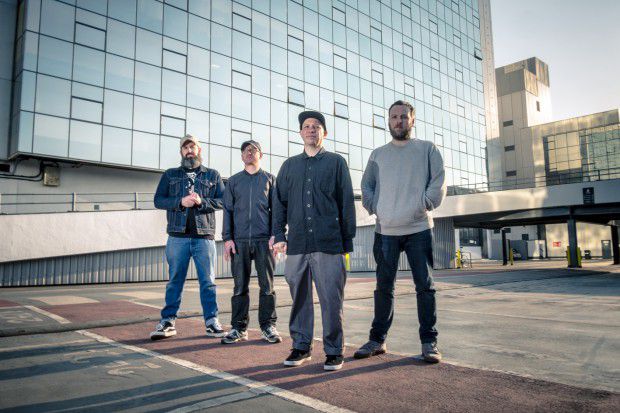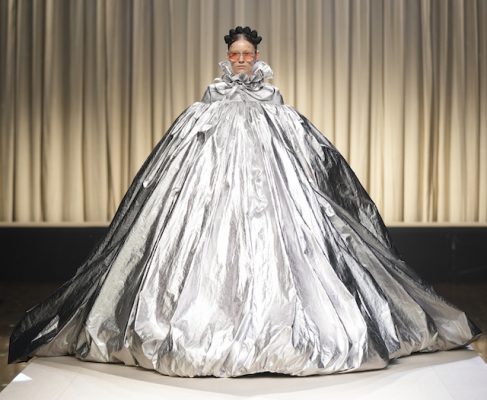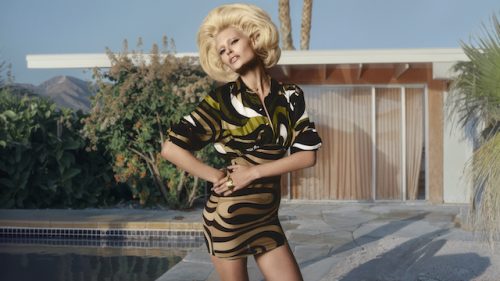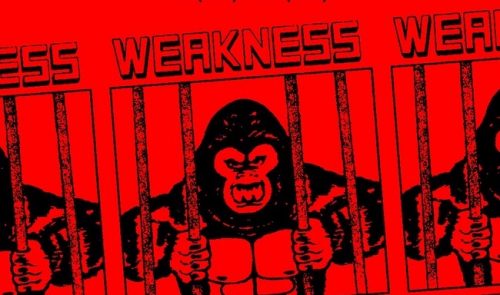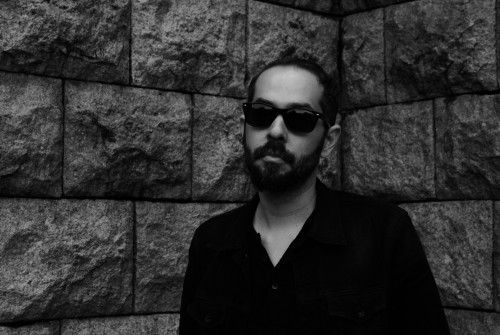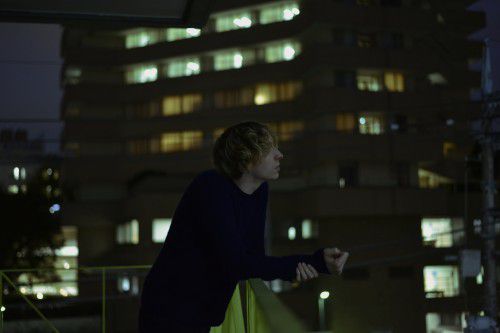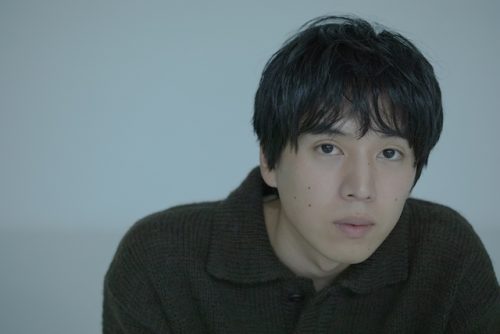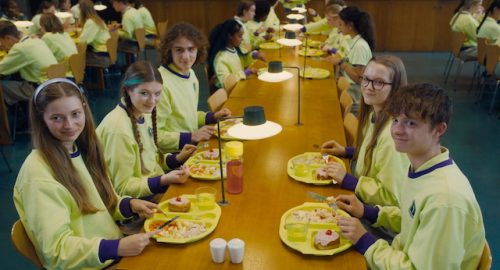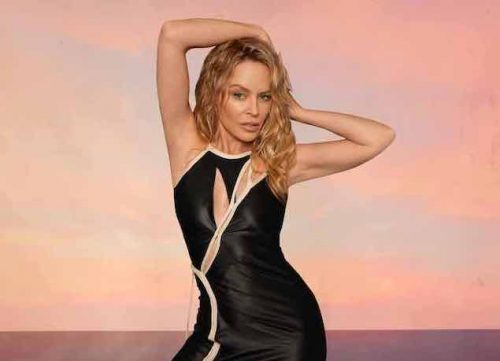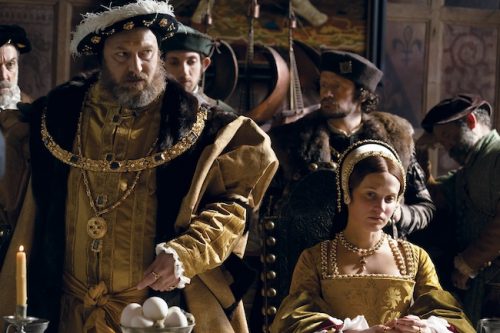-I really loved the show other day, and I was saying that it was probably the loudest show you have done in Japan…?
Stuart : A lot of people have told us how loud it was. The guy that was doing our sound, he’s only done it for us maybe once before, and our normal sound engineer who is on tour couldn’t come for all of the tour, and he obey the instructions too much.
Because you played ‘Coolverine’ as the first song that day, they thought that maybe you were going to the whole album like you did in Primavera Sound Festival, but that wasn’t the case.
Dominic : Nooo. We did about five new songs. I think it’s a tough task to ask the audience to listen to an entire album that they’ve never heard before. It’s got quite a lot of quiet songs as well, so people might have fallen asleep since it was late at night.
-So playing the whole new album was a one off thing? That was for a special occasion?
Stuart : Yeah they just asked us to do it.
-And it was even before the album comes out. How was it doing it?
Stuart : It was nervous. It takes quite a lot of things to get used to playing the new songs live. Eventually they’ll become muscle memory, and you’ll remember the chords and you can relax hopefully. It’s also the first the people are hearing the songs, so it was nerve-racking.
-I actually had a chance to talk to Barry Burns(Guitar/Keyboard), and Barry was talking about the new album saying that it was an album that you kind of thought about playing the songs live and I feels that it’s the first album where you could play all the albums live. What was like thinking about the live situation of the song?
Dominic: I think with our previous album, there were quite a few songs we couldn’t do live. When we’re making a record, we’ve never considered how we’re going to do it live. It’s quite often when you get into rehearsal and do the songs for tour, and that’s when you realize what’s possible and what isn’t because we don’t really want to put stuff with backing tracks. We want somebody to play the melody. It’s a low more fun when you can play everything live. It’s not like it’s the first album that we can everything live though.
-I felt that in the new album, the guitar sound was loud and powerful, but what was some of the things that you wanted to do in terms of sound?
Dominic : I think we were quite keen to just make David Fredman mix it. We had to play all of the songs in his studio on the first day. Put down all of our stuff and played all our songs, and they stood there and wrote notes and they told us what it was going to sound like. We didn’t really have a desire or anything to make sound like anything. We just wanted to sound good. The way he mixes, makes everything sound really full. That really sailed, and that really suited the songs that we had written.
-Well, it’s been about fifteen years since you last worked with David? So, what do you like about him as a producer? Why did you go to him again?
Stuart : I think we really enjoyed working with him before, and he’s really amazing at what he does. We’ve got a good working relationship with him. I think he’s quite trusting of us, and we’re quite trusting of him, so it’s quite an easy relationship to work with. The records we’ve made with him have turned out really really well. We wanted to go away as well. It had been so long since we recorded outside of Glasgow, so it seemed like a nice change. When we record in Glasgow it’s quite easy to just disappear and do nothing, and not do a full day of work. When we’re literally in the middle of nowhere, there’s nothing else to do other than just get onto some work so that was definitely a bonus.
-So before this album, you did the atomic record, and also before the soundtrack for The Front, and they’re both pretty ambient sounding works, so did that form the album in any way?
Stuart : I think it was probably the opposite. We used up all the ambient songs on the soundtracks, and made this one more of a rock. I think we did something away from that and just, and have more upbeat songs that will drive you to play live.
-Since they are more upbeat and sounds more rock, I’m guessing it kind of reminds you of your earlier works, where there were a lot of loud guitars. I was wondering whether before the soundtracks, you released the greatest hits, and celebrate your twentieth anniversary and you actually picked the tracklisting for the greatest hits, going through your old songs, did kind of remind you of your older works which you are at with this album? Does that make sense?
Dominic : I think the new songs are like that because the older stuff are still featured in our sets, so it’s not like we really forgotten about them. Actually that was one of the songs on the compilation of the songs that we still play, at least sometimes. I think because we wrote a lot of our songs on the guitar, and the instrument that the song is written on is usually the main one, so there were quite a lot of noisy guitar songs. That’s one of the reasons.
Stuart : Well your music is predominantly instrumental songs, but then sometimes you do feature vocals like the song, “Party in the Dark” and “1000 Foot Face”. How do you see lyrics now in your music? What do they mean?
Dominic : I guess it just depends on the song and type of music that they are. I think any song with lyrics, is always can be just another instrument really. It’s not really any matter of story or anything like that. It’s not the easiest part of making our records to be totally honest.
-So the lyrics don’t have much meaning?
Stuart : Not no meanings, but not a very specific story.
-Who writes them?
Stuart : It depends. I’ve wrote those ones, and a lot of other people have written other ones. Barry has written some in the past. I think John wrote lyrics for one songs too. But I usually do it.
-Where did you get your ideas from for the lyrics this time?
Stuart : For “100 Foot Face”, we didn’t really think about them at all. It was just, we did the song , and rate the song, and just kind of made them up. “Party in the Dark” was a lot harder probably because of the structure of the song. They had to really match with the rhythm of the song, so it was a lot more difficult. I just sat at the piano in David’S studio for what felt like a month, but it was probably about three days. I just tried to do it, thinking about things and stories I had from reading books to kind of gain inspiration and lots of different things. It was a great experience, and vanish from my mate.
-This is your first album after John left. Did you have to go through like reorganising or rearranging who does what? How was it making an album without John?
Stuart : It was okay. It was fine. I guess if John has played an instrument that nobody could play, that may have been a bit more of a problem, but we can all play guitar so we just knew how to contribute to the songs. There were only four beds in the studio too. (laughs)
-It hasn’t been a big problem with not having John in the band?
Dominic : We just go on with it. As far as playing it live, Alex has been able to fill in well, and he is more handsome.
-I had a chance to talk and interview with Geoff Barrow from Beak, and they were talking about Reading Festival and he was mentioning how it was becoming more and more difficult for guitar bands / rock bands now in the music scene. Maybe like ten years ahead, they might not be many bands who could play in front of like 10K, 20K, or 30K audience. Pop music is dominating so much, it’s a very difficult time for rock music, but you’ve been doing it for twenty years, so how do you see the current stage in the music scene?
Stuart : I think Geoff has a bit of a point. I think a lot of the very mainstream festivals have changed quite a bit. There’s quite a lot of smaller festivals, so I’m not that worried about it struggling of what to do. I know one of my formative experiences were going to Reading when I was very young in 1981, and it was the year of punk rock was formed, which was something we kind of all bonded over when we started the band. We were really excited when we first went out and did that’s in the realm of Reading and Pukkelpop. Even Pukkelpop wasn’t what it was. I think last year, Rihanna was one of the headliners. Things have changed. No offence to Rihanna, but it’s very very different from what it was from when we first played there, and we first started going to festivals. So I think there’s more festivals representing non-mainstream music, and maybe those festivals have just gotten so big that it has changed. Maybe it’s just that the festivals are getting more popular, so that the big festivals are representing more mainstream music taste.
—It’s a shame that All Tomorrow’s Parties had to close. You were the first curators right? How do you feel about that?
Stuart : Yeah, it was a shame and the organisers are good friends of ours so obviously, we had a rough time because no one like to see their friends have a bad time. There’s nothing else really, so yeah a lot of people were ….. There were a lot festivals like the Holiday Camp Festival that were canceled too. It’s actually kind of funny because they’re actually close to kind of like Club Weekenders looking at the line ups. They’re struggling in Europe and England now.
-In the UK they kind of had to change the way they put pop charts together, they started including the single streaming and then you kind of end up having eight of the songs by the same people in the top ten and you know it’s not really clever at the moment. With the streaming and everything and how did they do the charts, it seems that the system itself is more located towards more pop music, and it’s getting even harder and harder for indie bands or indie artists to get noticed even?
Stuart : Yeah, we’ve never been a big singles band anyway, but that is true. The people are putting more attention to streaming when there’s also some music magazines and these kind of things, and the irony is that more people are listening to music than ever, but it just seems that they’re kind of lost in the infrastructure, and they’re struggling quite a lot.
-Maybe these kind of indie festivals and events that are happening can kind of bring a little bit more to the scene, but what do you think? Do you feel you want to change?
Stuart : There are still some good events around. There’s a good one in Brussels and Liverpool. There very hard to organise though, and it’s hard to reach out to promoters.
-How are things in Glasgow? Are there up and coming bands from the scene?
Stuart : Yeah, there’s always loads of stuff. We’ve seen a band called SACRED PAWS and they’re doing really good. There’s always a lot of good music in Glasgow. I think there’s always a lot of small venues putting on all the time. I think a lot musicians that move to Glasgow as well, to make music. It’s really good.
